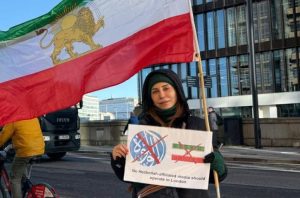Brics leaders call for cooperation in protectionist global environment

Unilateral tariff actions contribute to a protectionist environment, which poses hardships and danger for the countries of the Global South, President Cyril Ramaphosa said on Monday.
This requires Brics members to improve the resilience of their economies and strengthen the global multilateral system, he said.
Ramaphosa told a virtual summit of Brics leaders that the seismic shift from a unipolar to a multipolar world has been increasingly marked by geopolitical tensions and “intensifying global competition”.
He spoke as South Africa and several other countries grappled with the negative effect of punitive tariffs levied by President Donald Trump on United States imports, a move he says is intended to protect American manufacturers and jobs.
“The uncertainty of the new trading regime has already negatively affected employment levels in my own country South Africa and is an obstacle to our economic growth,” Ramaphosa said.
“We are therefore supportive of meaningful Brics initiatives that improve the resilience of our economies as Brics countries and those of the Global South and also strengthen the global multilateral system.”
Relations between Pretoria and Washington are strained over South African policies and laws that Trump’s administration says racially discriminate against white people. South Africa has denied this, and has also strongly rejected unfounded US charges of a white genocide in the country.
Trump said on Sunday he would not attend the G20 heads of state summit in Johannesburg but would send his deputy, JD Vance.
Ramaphosa reiterated that the 30% US tariffs imposed on South Africa posed an obstacle to its economic growth.
“We are therefore supportive of meaningful Brics initiatives that improve the resilience of our economies as Brics countries and those of the Global South and also strengthen the global multilateral system.”
He said the bloc’s focus should be on strengthening collaboration, diversifying trade and investment partnerships with Africa, Asia, the Gulf, the Americas and Europe.
“Our vision is of Africa that is the beating heart of global trade, engaging the world not as a mere exporter of raw materials, but as a creator of value, a connector of regions and a catalyst for shared prosperity.”
Ramaphosa reaffirmed South Africa’s commitment to the African Continental Free Trade Area, saying the multilateral trading system, with the World Trade Organisation (WTO) at its core, must be preserved “until all member states are able to reach their developmental goals”.
He acknowledged that although the WTO has, for 30 years, sought to ensure predictable, rules-based global trade, “imbalances persist”, with developing economies locked into the lower end of value chains.
“South Africa, therefore, reaffirms its support for the reform initiative that is being spearheaded at the WTO level. But we also say Brics countries must participate in championing the reforms that must take place at the WTO level,” he said.
Ramaphosa linked this to the need for broader reform of multilateral institutions, including the United Nations, “to ensure that it is inclusive, representative, and fit for purpose”.
He noted that as part of its G20 presidency, South Africa has launched an extraordinary committee of independent experts on global wealth inequality chaired by a Nobel laureate, Joseph Stiglitz. This committee will deliver the first-ever report on global inequality to G20 leaders, assessing its effect on growth, poverty and multilateralism, while offering solutions.
Ramaphosa urged Brics to “use our growing voice to advance a global order that improves the lives of the world’s people and safeguard the planet for future generations”.
He also reiterated support for Brazil’s call for a ceasefire in Gaza and for a two-state solution in Palestine.
Brazil’s President Lula da Silva said the WTO had been “in paralysis for years” and that unilateral measures in recent weeks have made Global South countries “victims of trade practices that are unjustified and illegal”.
“The tariff blackmail, it’s being normalised as a tool to conquer markets and to interfere in domestic issues. The imposition of extraterritorial measures are threatening our institutions,” he said.
“Now Brics should show that cooperation is above any form of reality or rivalry,” he added, arguing that the bloc’s rules and norms offer “a safe option to mitigate the effects of protectionism”.
Lula stressed the economic weight of the group, which accounts for 40% of global GDP, 20% of trade and nearly half of the world’s population.
Among its complementarities, Lula noted Brics has “great exporters and consumers of energy” and vast agricultural capacity. With 33% of arable land and 42% of agricultural production, he said the bloc could drive “a green industrialisation that will create jobs and income … in the high-tech sector”.
He said Brics had the legitimacy to push for a “re-foundation of the trade multilateral system” and said past failures in Afghanistan, Iraq, Libya and Syria were repeating themselves in Ukraine.
Lula backed South Africa’s genocide case against Israel at the International Court of Justice and also called for stronger climate governance, suggesting a UN council on climate change to coordinate fragmented global mechanisms.
Chinese President Xi Jinping said hegemonism, unilateralism and protectionism were getting “more and more rampant” and that trade wars and tariff wars severely disrupt the world economy and undermine international trade rules.
“At this critical juncture, Brics countries standing at the forefront of the Global South should act on the Brics spirit of openness, inclusiveness, and win-win cooperation,” Xi said.
He made three proposals for Brics countries. First, to uphold multilateralism to defend fairness and justice; second, to promote greater democracy in international relations and amplify the voice of the Global South; and, third, to deepen solidarity and cooperation to drive common development.
Xi said Brics countries, which represent nearly half of the world’s population and 30% of global output, must “leverage our respective strengths, deepen practical cooperation, and make our business, financial, scientific, and cooperation more productive”.
China, he added, was ready to work with partners on the Belt and Road Initiative and the Global Development Initiative.
“As long as we step up to take our responsibilities and look out for each other, the giant ship of Brics will brave the shifting international tides that sail far and steady,” Xi said.
Egypt’s President Abdel Fattah el-Sisi, attending as a Brics partner, said the world was “plunged in flagrant double standards” and “blatant violations” of international law.
He warned that this reality “has weakened the efficiency of joint international action and restricted states and UN agencies” from addressing urgent problems.
El-Sisi pointed to the UN Security Council as a “flagrant example” of the system’s failures, arguing that its veto power had become “a tool for isolating the council from reality and leaving it incapable” of resolving disputes.
He said developing states faced worsening debt burdens and limited access to concessional finance, while the “developmental finance and digital gap” widened.
Brics provided “a prominent international forum” to foster mutual respect, strengthen multilateralism and coordinate efforts to “contribute to forging a much fairer and balanced international regime”, El-Sisi added.



